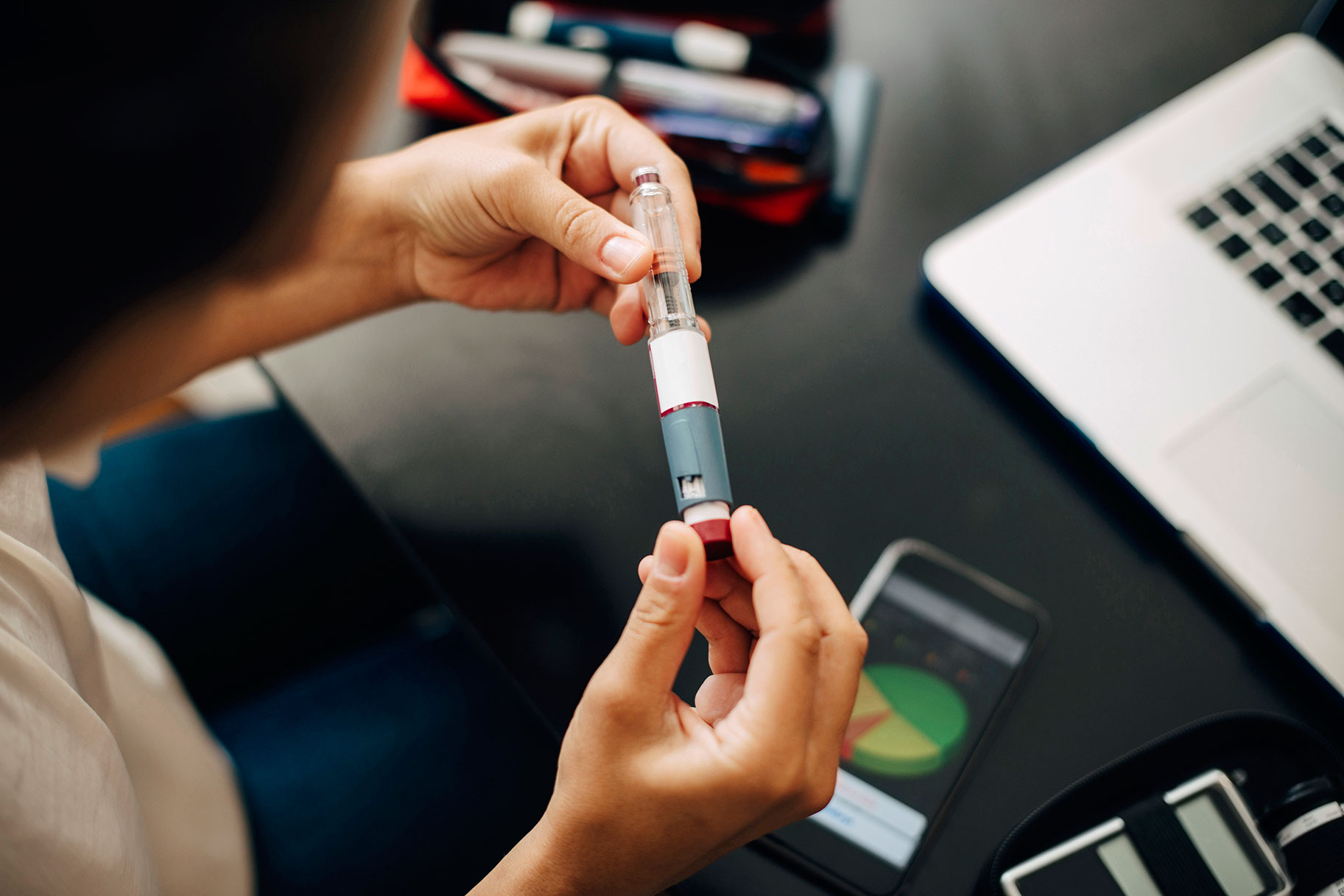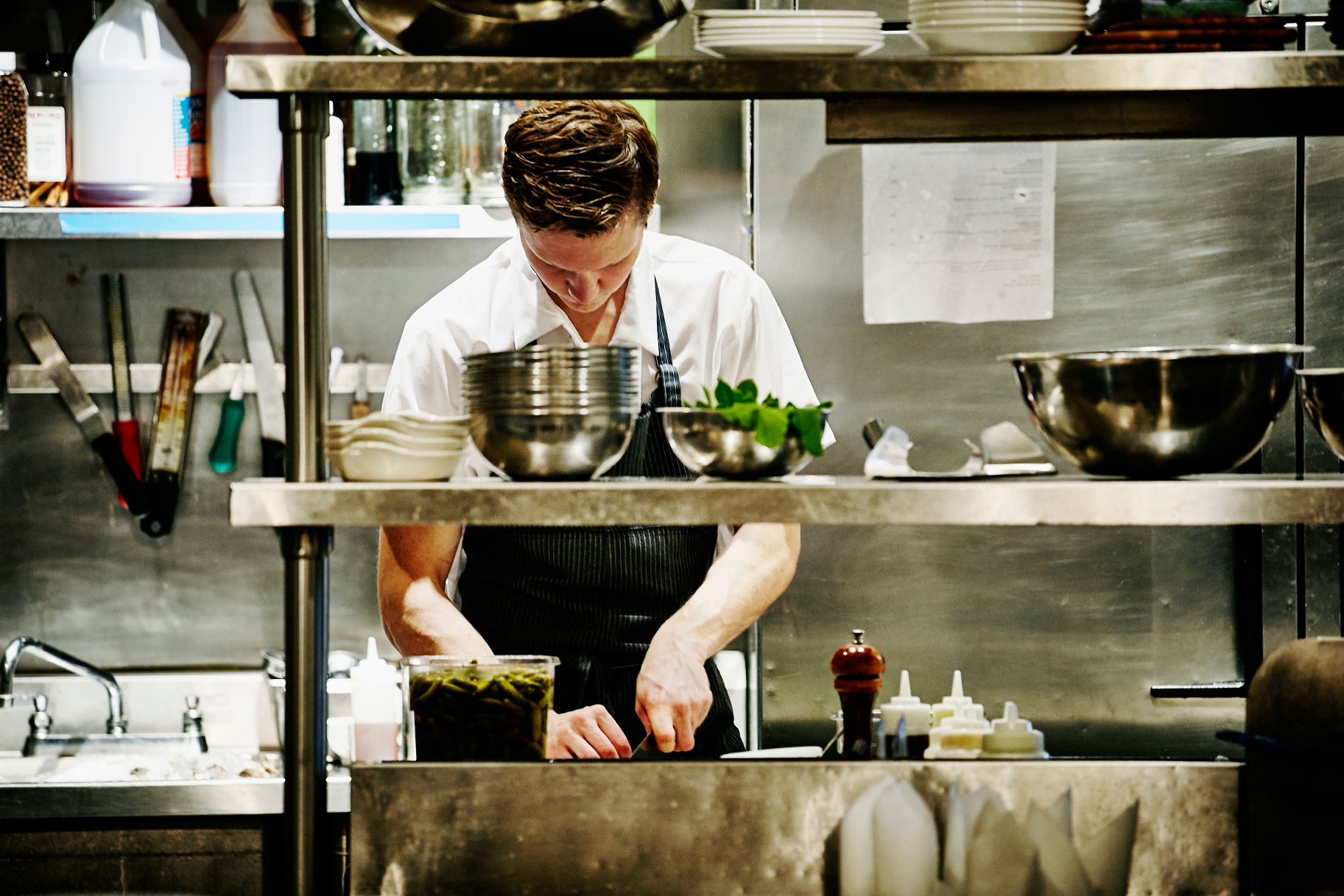7 Food Allergy Safety Tips (From a Mom Whose Daughter's Life Is at Risk Every Day)
These food allergy safety tips could save your life while traveling — or simply dining out anywhere.

By Elizabeth Seward
The sandwich shop Pret a Manger finds itself at the center of tragic news this month: It has confirmed in a tweet that a customer with food allergies died in 2017 as a result of mislabeled food. The confirmation came amid scrutiny after a 15-year-old girl with a food allergy died on a plane in 2016 after eating a mislabeled Pret a Manger sandwich purchased at the airport.
Anyone can imagine the horror and shock for the families involved; as a parent of a child with a life-threatening food allergy, I'm especially aware of the concerns.
Living with food allergies is like navigating a minefield on a daily basis: You can never be totally sure whether your next meal could kill you (or your daughter, in my case). As simply experiencing everyday life safely while at home is a challenge for the food allergic, it's clear traveling can be that much scarier. But with proper research, planning, and diligence, food-allergic people really can enjoy traveling, whether it's to a far-flung destination... or just anywhere outside the home where risks exist.
While certain precautions (like wiping down surfaces) are relatively straightforward, some of the more nuanced issues that come up with food allergies while traveling can trip up even the very informed.
I talked with Dr. Purvi Parikh of the Allergy & Asthma Network via email to get some clear answers on how the food allergic can stay as safe as possible when away from home. With her feedback and my experience, here are seven food allergy safety tips to know when you're away from home.
1. Notify airlines in advance of your allergy.

Even before the Pret a Manger news, you've probably heard a story or two involving airlines and food allergies: That's because planes can be a perfect storm for the food allergic. Between the recirculated air, close quarters, and snacking that takes place on board, reactions to food can and do take place on planes. Since no one wants to be stuck in the air far away from an emergency room while having a food allergy reaction, it's important that precautions are taken in advance of a flight. It makes sense to wipe down surfaces you'll be using and to bring your own allergy-safe snacks, but informing the airline in advance is a smart move. Airlines will often try to accommodate everything from seating to the food served on a flight. The key is that they have to know ahead of time. "Preparation is key," Parkh says. "Last-minute changes may be hard for a full flight and in those cases, it may delay travel. However, if you notify an airline in advance with appropriate documentation, there should be no issue."
2. Be especially cautious if your allergen is more likely to be airborne.
Not all allergens are created equal when it comes down to airborne reactions. Certain allergens are more likely to create dust particles that can travel farther than others. If you know you have airborne reactions, it's crucial that you base your travel decisions on that knowledge. While the severity of any allergy (whether it's peanuts or kiwi) will dictate how likely a person is to react to airborne particles, the most problematic allergens for airborne reactions, according to Dr. Parkh, are usually nuts, peanuts, and shellfish. The preparation method also matters here. There have been cases of those with egg allergies reacting with more sensitivity to airborne particles when boiling or frying (vs baking) is involved.
3. Research how food allergies are treated where you're traveling to and prepare accordingly.
Food allergies, for reasons we haven't completely established yet, are most prevalent in developed countries. This means that knowledge of food allergies — including experience with treating reactions — is not the same everywhere. You should research and prepare according to your specific destination. "Certain areas of the world with low food allergies may not be used to dealing with them," says Dr. Parkh. "Sadly, some may not realize the severity and seriousness of a food allergy." She recommends that travelers visiting areas like this notify hotels and restaurants in advance, always bring an epinephrine source (like EpiPens) along for the trip, and consider packing their own food. She also suggests that food allergic people in this situation bring extra EpiPens (or alternatives) and even additional medications to help protect against worst case scenarios in remote locations or regions where emergency rooms aren't prepared to handle cases of anaphylaxis.
4. Always bring epinephrine with you.

This tip might seem redundant, but it's worth emphasizing again: If you have a food allergy and will be traveling, you need to have EpiPens or a similar epinephrine alternative with you. The truth is that previous reactions do not indicate future reactions and neither do skin or blood test results. A person could spend 20 years only ever experiencing slight discomfort from a confirmed allergen and then experience anaphylaxis suddenly one day. "Life-threatening" is a qualifier some of us use to make sure we're understood, especially when we know there's a history of anaphylaxis, but any real food allergy can be life-threatening. In the case of a serious reaction, medications like Benadryl or other antihistamines simply are not enough. What's worse is that they can actually work to temporarily block the symptoms of anaphylaxis, leading them to resurface when it's too late for epinephrine to have a meaningful effect. "We never recommend Benadryl as a first line," Dr. Parkh tells me. "Epinephrine is the only life-saving medication that can stop an anaphylactic reaction."
5. Use extreme caution when eating food you didn't prepare yourself.

The food allergic already know that they're at risk every single time someone else prepares their food, whether it's in a restaurant or at a friend's home. But when at home, people with food allergies can eventually learn to become comfortable with specific kitchens other than their own. This comfort level is not something you get when traveling. Research ahead of time and make an effort to speak with restaurants in advance. Repeat yourself if necessary and be clear on the severity of the allergy. If you have any doubts at all that the person who will be preparing your food might not fully understand how to accommodate your allergy, eat elsewhere. It's simply not worth the risk.
6. Know that certain factors increase your risk of having a severe reaction.
It's important to know that some things can actually make you more likely to react to your allergen or to have a more severe than usual reaction. "Alcohol, heat, and exercise all lower your threshold for having a severe reaction. Also, certain medications, such as NSAIDS, can lower this threshold. If you are sensitive, it may be best to avoid within three hours of eating." So before you decide to pound a few cocktails before dinner or spend time in a sauna prior to a meal, please be sure to take this into consideration.
7. It's not just what you eat — but what you put on your body.

Food isn't the only thing the food allergic have to worry about, unfortunately. Bath and body products are regular culprits behind anaphylactic reactions and they can make something as simple as using the hand soap in a public bathroom dangerous. In fact, recent research suggests that the use of topical products that contain food items might actually lead to the development of allergies. "I have had my patients have issues," Dr. Parkh explains. "Although it makes for more luggage, you can always bring your own."



